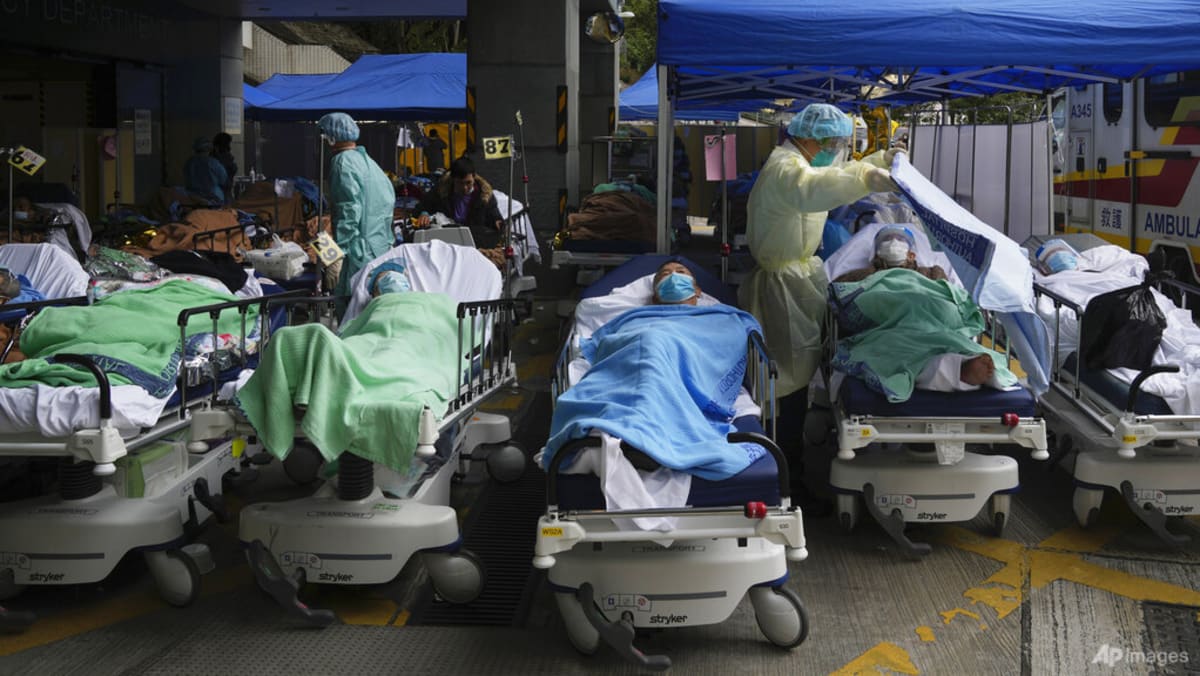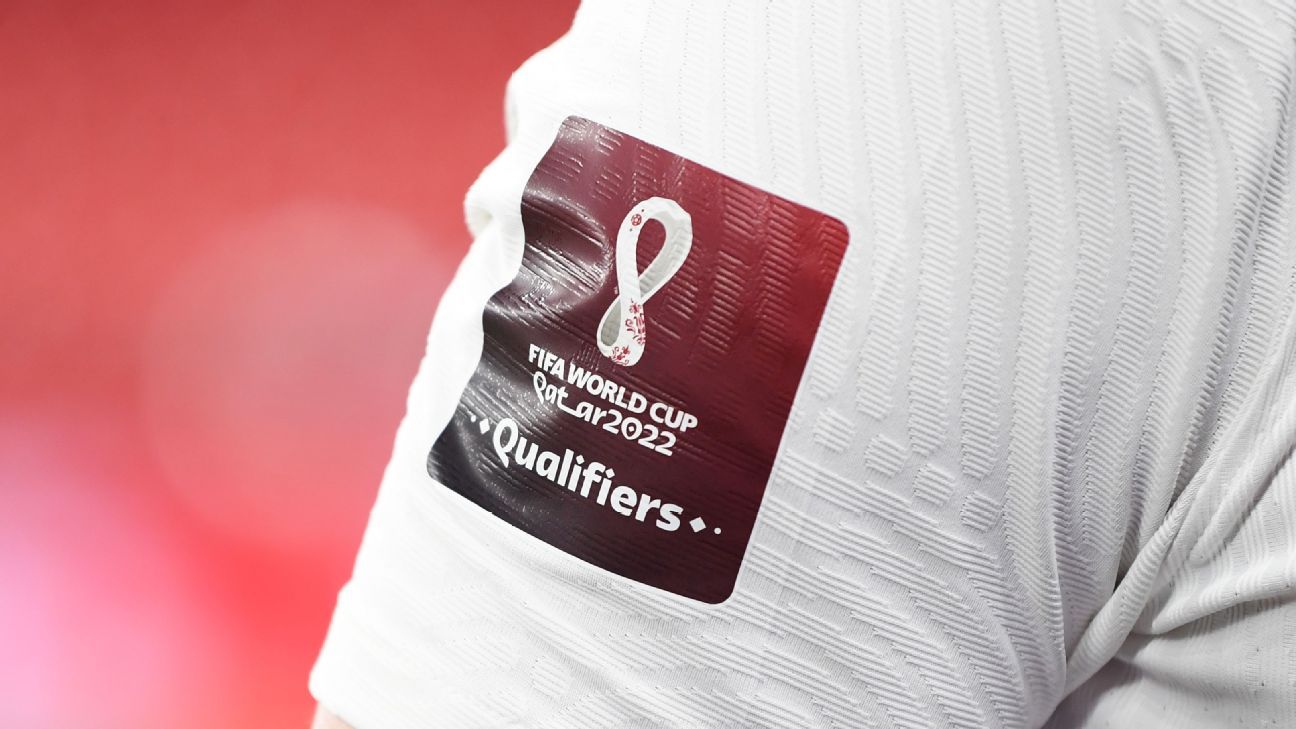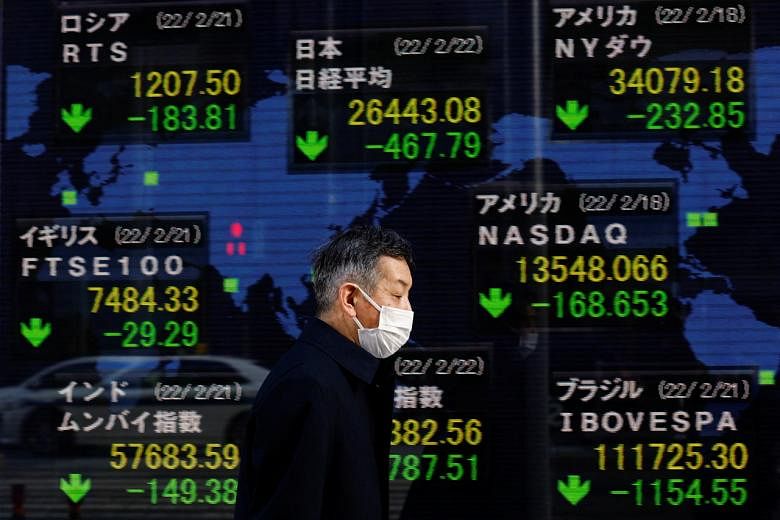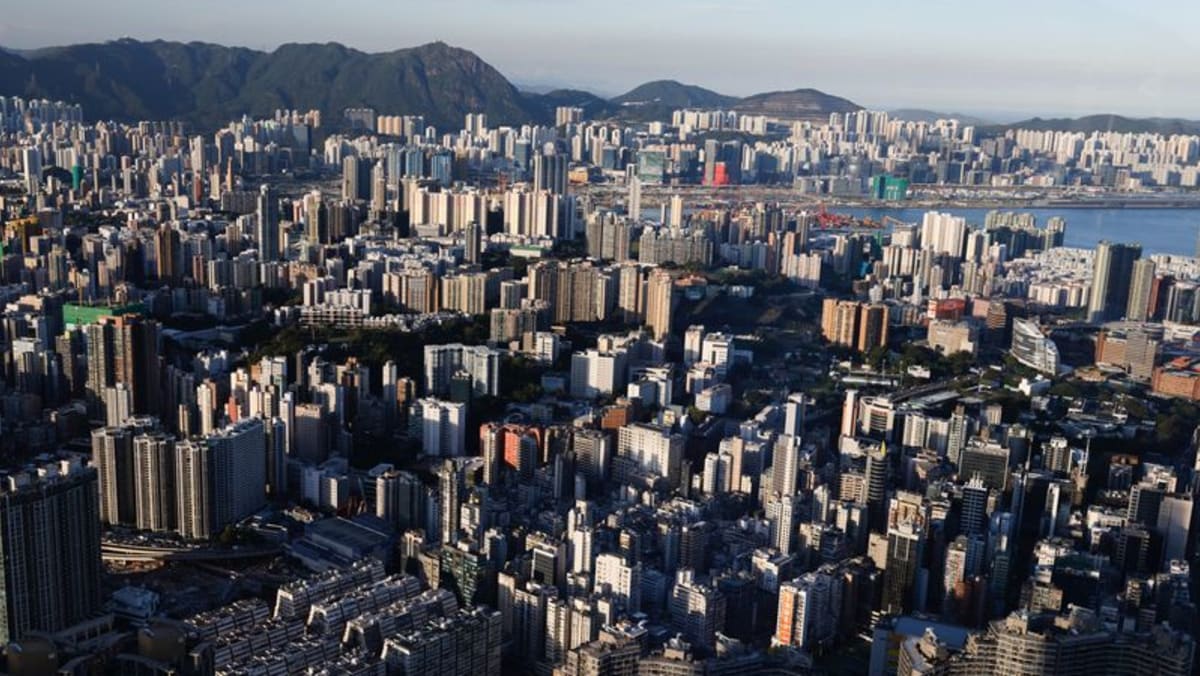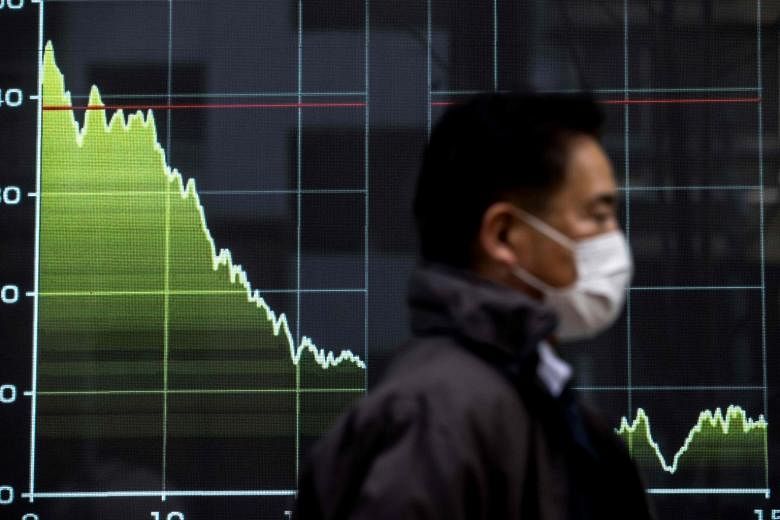SINGAPORE - Global stocks dived and oil soared on Thursday (Feb 24) as investors fled to safety after Russian President Vladimir Putin launched an invasion of Ukraine.
Futures for the S&P 500 and Nasdaq both slid more than 2 per cent, putting the tech-heavy Nasdaq at risk of a bear market. European markets plummeted, with the Stoxx 600 Europe index down 3.6 per cent.
“The markets are pricing in a full-scale war now that Putin has finally launched attacks on Ukraine,” KGI analyst Joel Ng told The Straits Times.
In Singapore earlier, shares moved sharply lower immediately after news of the latest developments, with the Straits Times Index (STI) closing 3.5 per cent lower.
The last time the STI had a steeper one-day drop was on March 30, 2020, when it fell 4.5 per cent after relief from global fiscal support measures faded with uncertainty over the length of the Covid-19 pandemic.
Compared with its regional peers, shares in Singapore were the most affected in Asia. Major indexes in Japan, Hong Kong, South Korea and Australia closed between 1.8 per cent and 3.2 per cent lower.
“The STI has fallen the most among Asian bourses since it was also the index that rose the most year to date,” said Mr Justin Tang, head of research at United First Partners.
“Investors may be seeing the opportunity to take profit, as many of the component stocks on the STI are dividend-yielding stocks. With oil prices rising, many may also be offloading Reits (real estate investment trusts) in anticipation of higher interest rates to come,” he added.
Dragging down the STI were bank stocks OCBC, UOB and DBS, which have a combined 45 per cent weighting in the index, after OCBC posted underwhelming fourth-quarter earnings due to higher expenses and lower trading income.
OCBC and DBS each lost more than 4 per cent, while UOB shed more than 5 per cent.
Singapore Airlines tumbled more than 6.2 per cent, while in-flight caterer and ground handler Sats lost more than 5 per cent, due to concerns that “higher oil prices may be passed on in the form of higher air fares, which could dampen demand for travel", Mr Ng said.
But against the sea of red, oil and gas plays RH Petrogas and Rex International chalked up gains of nearly 12 per cent and 4.8 per cent respectively.
The run-up in gold prices also rubbed off on gold producer CNMC Goldmine Holdings, which jumped 4.6 per cent on Thursday.
Brent crude futures soared past US$100 a barrel for the first time since 2014 amid fears of a disruption to the region’s critical energy exports.
Natural gas in Europe rose as much as 41 per cent, while prices of metals like gold, aluminium and nickel, and grains like wheat and soya bean spiked, piling on inflationary pressures.
Russia is a key seller of multiple commodities to global customers, with Europe relying on the nation for about a quarter of its oil and a third of its gas.
The increase in the prices of key commodities is contributing to a surge in inflation already at its highest level in decades. This is posing a cost-of-living crisis for millions around the world and may force central banks to raise interest rates.
Both inflation and higher rates may derail the global economy's rebound from the pandemic.
Adblock test (Why?)
https://news.google.com/__i/rss/rd/articles/CBMiigFodHRwczovL3d3dy5zdHJhaXRzdGltZXMuY29tL2J1c2luZXNzL2NvbXBhbmllcy1tYXJrZXRzL2FzaWEtc3RvY2tzLXR1bWJsZS1hcy11cy13YXJucy1vZi1pbW1pbmVudC1ydXNzaWFuLWludmFzaW9uLW9mLXVrcmFpbmUtc3RpLWRvd24tMTbSAQA?oc=5
2022-02-24 02:12:20Z
1290197942
